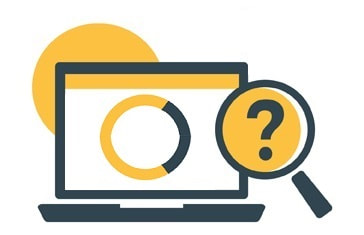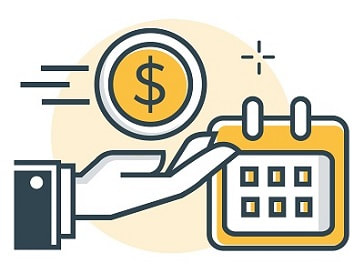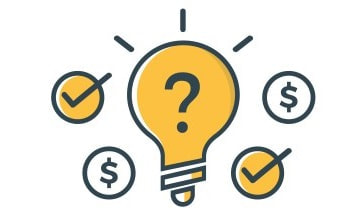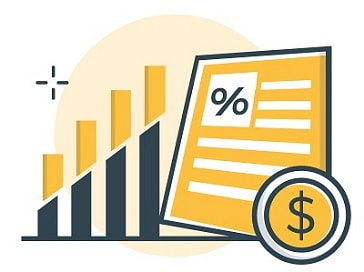20 Indicators You're Doing Well Financially in New Zealand
Our guide reveals the 20 key signs of financial wellness in New Zealand - go beyond bank balances and asset valuations with insights to help you achieve holistic financial success.
Updated 5 April 2024
Summary
Related Guides:
- It's very normal to want to understand if you're doing well financially; however, it's more than just a measure of bank and investment balances – your attitude to money and choices factor in heavily.
- New Zealand has an alarming amount of consumer debt, and it's holding people back from being able to plan their futures. We believe a lot of consumer (e.g. non housing) debt is used to buy goods and services that create short-term happiness and/or a sense of success, but in reality, it is just poor choices that generate more credit card debt that, eventually, needs to be repaid.
- While living costs are high, there's a supermarket duopoly, New Zealand is remote, and there is seemingly always a housing and rental shortage; life can be good with the right way to approach finances.
- If you can save a portion of your income every month, have an emergency fund and don't pay credit card interest or have a personal loan outstanding, you are well ahead financially.
- This guide explains twenty indicators that you're doing well financially - if you have any comments or wish to share something on this very important subject, please contact our research team.
Related Guides:
MoneyHub Founder Christopher Walsh Explains Why We've Published this Guide:
|
"There's too much consumerism – how well we're doing is artificially driven by society's expectations and comparisons. News stories and social media applaud big houses, fast cars, fancy hotels, expensive restaurants and unaffordable clothes, among other things. But for what reason? I argue these things are artificial and don't generate long-term joy, nor do they make sense financially if you're borrowing to buy them via credit cards and loans – and many people do just that with no game plan".
"By avoiding comparison and looking internally at what matters to you, it's easy to get ahead and focus on what's important to you and what makes you happy. This guide is not published to be idealistic – too many New Zealanders are in bad financial shape, and I want to help explain what can be changed to help as many people as possible get on track." "Life is long, and there's a lot you can do. I don't want people trapped by debt and stuck in a cycle of taking hard-earned money and giving it to banks and personal lenders - too many New Zealanders have made small financial decisions with long-term costs. My comments are threaded throughout this guide - this is a subject I care too much about to stand on the sidelines". |
Christopher Walsh
MoneyHub Founder |
Twenty Indicators You're Doing Well Financially
You don't compare yourself to others (regarding what you and others have or don't have)It's somewhat cliché, but 'keeping up with the Joneses' is almost certainly financially problematic, and it's probably a game you can never win. Buying stuff to impress people has become normalised, but the long-term costs grow and grow.
If you're thinking of changing your car because a friend said something derogatory about your car, it's arguably a better idea to change your friend and keep the car. Yet every day, people take on debt to buy new cars, clothes, furniture, electronics and experiences. Unfortunately, with a social media culture, there is a lot of buying to brag, a game that no one wins. However, if you've given up comparing your job, income, car, house and everything else to those of your peer group (or never did so in the first place), you'll avoid 'spending for others' and be much happier. MoneyHub Founder Christopher Walsh shares his view on comparing yourself to others:
We shared this guide with New Zealanders, and selectively include their comments below:
|
You're investing regularlyYou don't need to put money into shares or funds to invest – call accounts and term deposits are investments that pay more than 5% p.a. in interest and don't have any downside risk. If you can save and invest 10% of your payday, you're doing well financially because the compounding returns immediately give you more options. For example, if an urgent expense comes up, you don't need to go into debt and pay to spend your money – you can immediately meet the costs.
Christopher says:
|
You're fully aware of your money – you know how much you earn and spend and have a great relationship with moneyIf you're comfortable seeing how much money is in your bank account at any time and don't feel anxious when you check, you've established a good relationship with your money. Many New Zealanders are unfamiliar with how much they earn and how much they spend, resulting in uncertainty, overspending and debt creation.
Given their benefits, we strongly suggest considering a budgeting app as a helpful starting point, including immediate familiarisation with where all of your money goes and what that means. |
You have an emergency fund – 39% of New Zealanders can't access $5,000 without getting into debt2023 research from the Financial Services Council confirmed a dire situation for most New Zealanders In simple terms. you're vulnerable to unexpected costs and emergencies if you don't have a financial safety net of 3 – 6 months of living costs. Getting into debt to pay for cost shocks only leads to greater debt, which always needs to be repaid, and people worry about money the most when they don't have any.
If you're paying yourself at least 10% of your after-tax income monthly and putting into an emergency fund such as an on-call account, you're financially protected from taking on more debt. Building a healthy emergency fund is the most essential first step if you're not doing that. |
Your debt is manageable – mortgage repayments are made on time and without stressIt's normal to have debts; good debt includes mortgages and credit cards (when you can repay the balance the month after). Bad debt is credit card debt you struggle to repay; make the minimum payment and keep loading it up. That's bad news and not something that improves easily without significant habit changes. Our guide to paying off a credit card on an average salary has more details.
Interest rate rises since 2021 have come as a surprise for many – the 2.50% to 7%+ p.a. mortgage rate jump has again challenged housing affordability and made everyday life in New Zealand a bit tougher. Nonetheless, if you can meet your debt obligations and stay on track with regular repayments, that's something to be content with. |
You're consistently living below your meansLiving below your means is an adage that stands the test of time. It means that you're aware of your income and consciously spending less than you earn. This simple principle ensures you always have a buffer and you're not stretched too thin, which can lead to a debt spiral. Too many New Zealanders spend more than they earn, which leads to long-term financial misery. By doing the opposite, you avoid relying on credit cards, overdrafts and personal loans.
Christopher says:
|
You're not stressed about the next big expenseLife is unpredictable, and big expenses can come out of the blue - be it a home repair, a medical emergency, or an unforeseen travel. You're in a strong financial position if you're not lying awake at night worrying about these potential costs. An emergency fund is the best asset to avoid everyday money worries.
Christopher says:
|
You value experiences over material possessionsIf you find joy in experiences – be it travelling, learning a new skill, or just spending quality time with loved ones – over the latest gadgets or luxury items, you're aligning with a mindset rich in contentment, not just possessions. This approach to life is increasingly popular as consumerism peaks and New Zealanders reflect on what makes them happy – it's often not the clutter in their homes they once bought on a whim.
Christopher says:
|
You're proactive about your financial educationThe financial world is complex, and it's ever-changing. If you're continuously learning, staying updated with market trends, understanding new investment vehicles, or just brushing up on basic financial literacy, you're empowering yourself to make informed decisions.
We know many New Zealanders enjoy using MoneyHub, and many of our most popular resources have come from user suggestions, so we're always learning. If you want to know something we haven't covered, please get in touch with our research team. Knowledge truly is power in finance - the more you understand, the better decisions you'll make, and it's an investment that pays the best interest. |
You have a diversified investment portfolioIf you've spread your investments across different asset classes – shares, real estate, KiwiSaver, term deposits, funds and more – you're not just banking on one horse. Diversification can help manage risks and tap into various growth potentials.
Christopher says: "Diversification isn't just a buzzword; it's a strategy. By spreading your eggs across multiple baskets, you ensure that a single market downturn doesn't sweep away all your hard-earned savings." |
You're planning for retirement, irrespective of your ageWhether you're in your 20s, 30s, 40s, or even older, thinking about and planning for retirement is a positive financial sign. Starting early can harness the power of compounding, but starting at any age is better than not starting at all.
Christopher says: "Retirement might seem like a distant reality for many, especially the younger generation. But the future has a funny way of arriving unannounced. Planning today can ensure a comfortable and stress-free tomorrow." |
You understand the value of patience in the financial journeyIn a world of instant gratification, understanding that financial growth takes time is vital. There are so many get-rich-quick schemes - 'FX trading', 'binary options', 'wealthy academies' and 'property academies' being recent examples. Many are also investment scams. However, if you value the slow and steady approach, you're grounded in financial wisdom. Too many New Zealanders think there's a shortcut to wealth, but it takes hard work, consistency, a bit of luck and sacrifice. An expensive course advertised on YouTube by a 'guru' is not the answer.
Christopher says:
|
You prioritise mental and emotional wellbeing over extravagant purchasesTrue wealth isn't just about accumulating money; it's about understanding the intangible value of peace, contentment, and happiness. If you prioritise experiences or activities that boost your mental and emotional health over flashy, status-driven purchases, you're cultivating a rich life in more ways than one.
Christopher says:
|
You're comfortable saying 'No' to unnecessary expensesIf you can comfortably decline invitations, offers, or opportunities that don't align with your financial goals or values, you're exercising powerful financial discipline. Peer pressure is strong, it's too easy to say yes, but 'yes' can get expensive. Splitting a bill for a non-significant birthday can get into $100+ territory very quickly when seeing the same person for a coffee is 10% of the price and, in many cases, more constructive. You may not be in the Instagram photos that flood the feeds later but you'll have saved money and strengthened your will power.
Christopher says:
|
You value quality over quantityInvesting in fewer, high-quality items that last, rather than constantly buying or upgrading, showcases a sustainable and thoughtful approach to consumption. Apple, for example, is a notorious pusher of new models and upgrades, but do the new features justify the cost? Fast fashion is another industry that damages the environment with throwaway 'wear-it-four-times' clothing that offers very little long-term value and confuses people by cluttering their wardrobes. As the saying goes, quality is remembered well after price is forgotten.
Christopher says:
|
You celebrate financial milestones, no matter how smallRecognising and valuing every step forward in your financial journey is crucial. Whether successfully sticking to a budget for a month, paying off a particular credit card, or saving a little more than usual, every achievement is a testament to your dedication and discipline. Moving forward financially is significant, and no step is small, given it's all too easy to be sidetracked by the billions spent on marketing for our money every year.
Christopher says:
|
You have diversified sources of incomeDiversifying income sources represents not just innovation but resilience. Nothing is certain - jobs vanish overnight with a change of government, corporate cutbacks and high interest rates reversing growth. From investments to side businesses or freelance work, multiple revenue streams ensure you're not vulnerable to sudden economic shifts or unexpected job losses.
Christopher says:
We shared this guide with New Zealanders, and selectively include their comments below:
|
You make financial decisions based on informed research, not emotionsMoney matters often intertwine with emotions, leading to impulsive decisions. However, making informed, well-researched decisions can mean the difference between financial success and setbacks. Whether it's investments, major purchases, or financial planning, a systematic and informed approach serves you best in the long run.
Christopher says:
|
You actively prioritise long-term financial goals over short-term impulsesA hallmark of financial wisdom is visualising the bigger picture and prioritising long-term benefits over immediate gratification. This could manifest as investing rather than splurging on a luxury or saving for retirement instead of going on an extravagant holiday.
Christopher says:
|
You're comfortable talking about money with your partner or spouse and make decisions for big items togetherOpen communication about finances is a cornerstone of strong partnerships. Money, often cited as a leading cause of stress in relationships, becomes less of an issue when both parties are transparent about their financial health, goals, and concerns. This paves the way for mutual financial growth and nurtures trust and understanding in the relationship.
Christopher says:
|


























